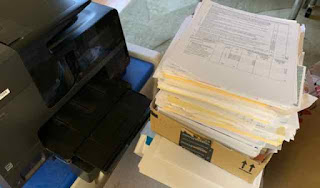Auto racing, hunting, and anything to do with heavy industry, extraction, and agriculture (raising tomatoes in containers doesn't count) are worlds removed from the bicoastal ivory towers, so it's no surprise that CNN got it wrong when reporting on the Indianapolis 500.
For CNN--which appears to have no knowledge of the rube culture in flyover country--referring to "NASCAR'S Indianapolis 500" is an understandable error, just like generalizing all non-STEM majors as worthless is an understandable error by people who don't bother with the finer points of credentialism (FYI, dear reader, I'm a non-STEM major). Lumping together two very distinct racing institutions like NASCAR and the Indy 500 is like referring to "Boeing's A320" or "Google's iPhone."
Speaking of racing, I watched the very fine
Ford v. Ferrari, a "true-story" movie about the Ford Motor Company's all-out effort to wrest the
24 Hours of Le Mans trophy from Ferrari in 1966.
While it has excellent-and-not-too-dizzying racing sequences, the power of the movie rests on
Carroll Shelby's effort to get Ford to agree to the car designs and the driver, Ken Miles, he wanted. Matt Damon (Shelby) and Christian Bale (Miles) give excellent performances as they battle each other, the Ford bureaucracy, Lee Iacocca, Henry Ford II, and Enzo Ferrari.
What resonated most with this boomer was the movie's depiction of pre-1968 America, when men were confident in their ability to accomplish anything after the shared experience of World War II and when the women they loved supported them while being smarter than they were--Holy Pride and Prejudice, Batman! (1966 language reference). In tone, color, character, and attitude the movie was very much like
The Right Stuff, the movie and book about the
fighter pilots who became the first astronauts.
Highly recommended, even for those who don't know the difference between carburetion and fuel injection.






































However, the deadline for submission has forced them to eliminate governance language and draft a "clean" bill: